Crop-eating stink bugs could become widespread in US, study warns
- Published
- comments
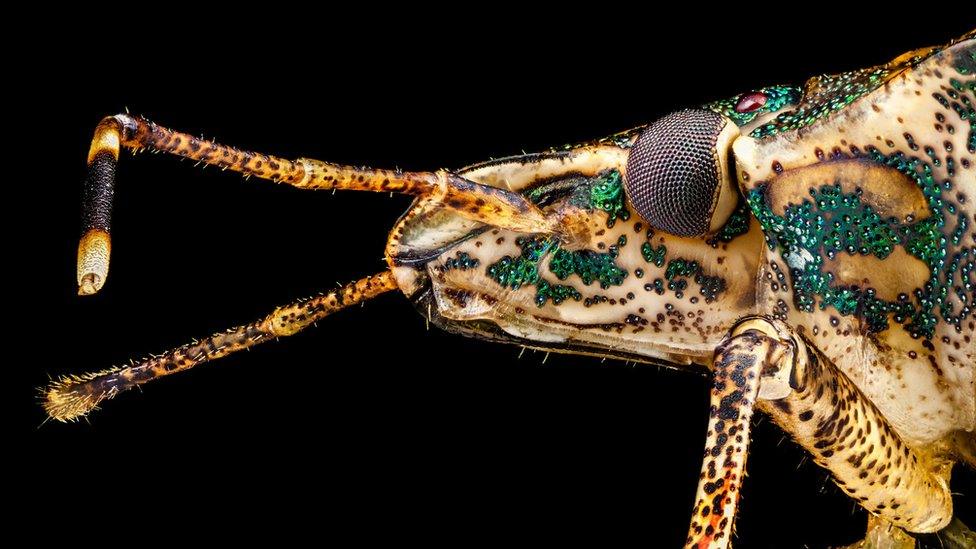
An invasive species of stink bug is becoming more widespread in the US because of climate change, says a study by Washington State University.
Research from the university found that changing weather conditions may create a better habitat for the brown marmorated stink bug.
Scientists spent three years researching and assessing stink bugs for this study.
The lead author of the study Javier Gutierrez Illan says there are things that can be done to help prevent the spread of stink bugs, but warns that farmers and authorities should "prepare for change".
They are known as stink bugs because they give off a really nasty smell when they feel threatened.
Washington State University says that stink bugs are known to eat as many as 170 different kinds of plants.
The US's Environmental Protection Agency say that stink bugs like to feast on fruit crops, like apples, pears, cherries and grapes.
They say that stink bugs can ruin the look of the food they eat, which means they are no longer fit to be sold.
This means that lots of crops could be wasted and farmers might lose lots of money as a result.
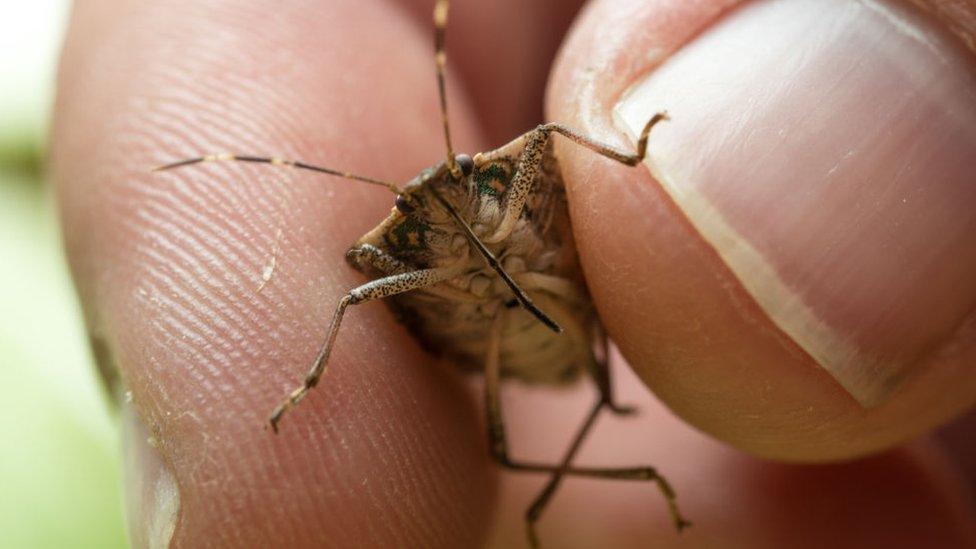
The lead author, Javier Gutierrez Illan, said that there is chance people might unknowingly be transporting the bugs even further across the US on farming equipment and vehicles.
The stink bugs were originally from Asia, but were accidentally transported to the US in the mid-1990s. They have grown in numbers ever since.
According to Washington State University, they have now been found in 46 out of 50 states, and are classified as pests in 15 of those 46 states.
The study's authors say stink bugs do not cope as well in colder temperatures.
But as climate change brings warmer winters, there is a greater chance that stink bugs will thrive throughout the year.
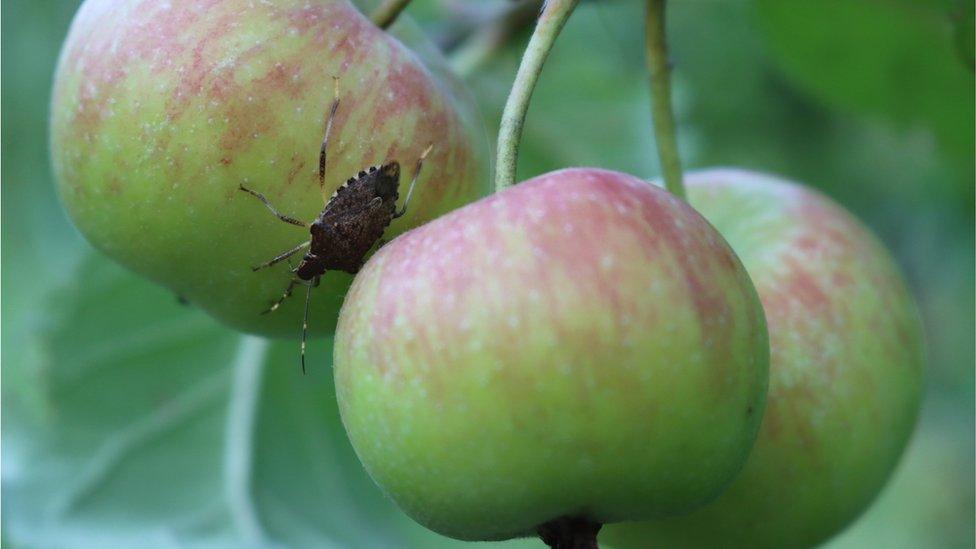
In some US states, like Washington, an insect called the samurai wasp has been introduced to help control the stink bug population.
Samurai wasps lay their eggs inside of stink bug eggs, which stops a stink bug from hatching.
The US's Environmental Protection Agency (EPA) says it is working with the US's Department of Agriculture, universities and others to create a "sustainable pest management solution".
And the EPA has approved requests to use certain insecticides - a substance used to kill insects - to help limit the spread of stink bugs.
- Published21 July 2019
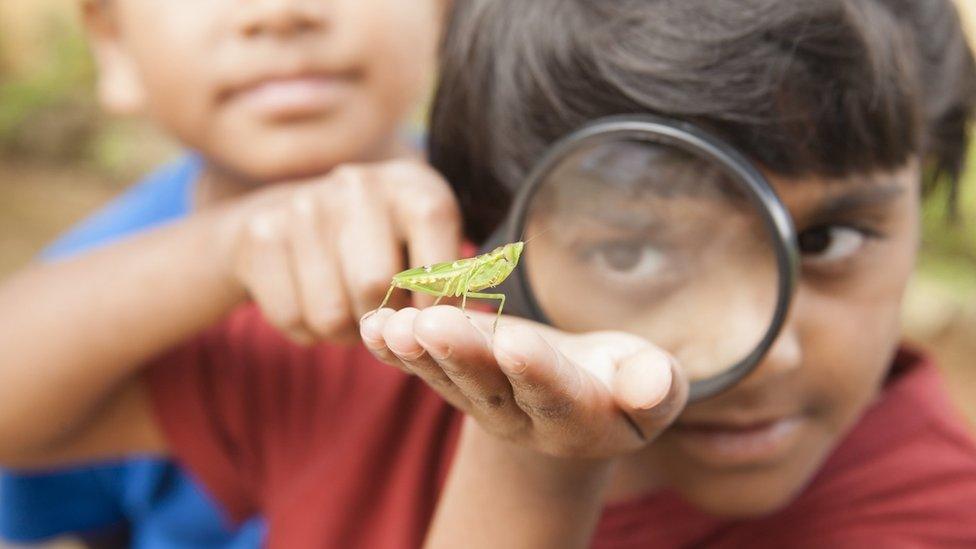
- Published6 November 2019
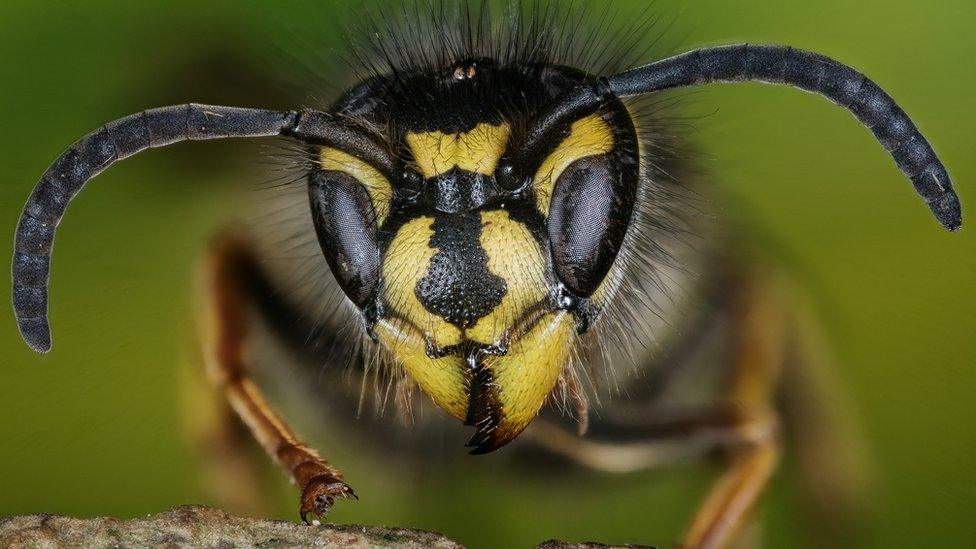
- Published20 January 2020

